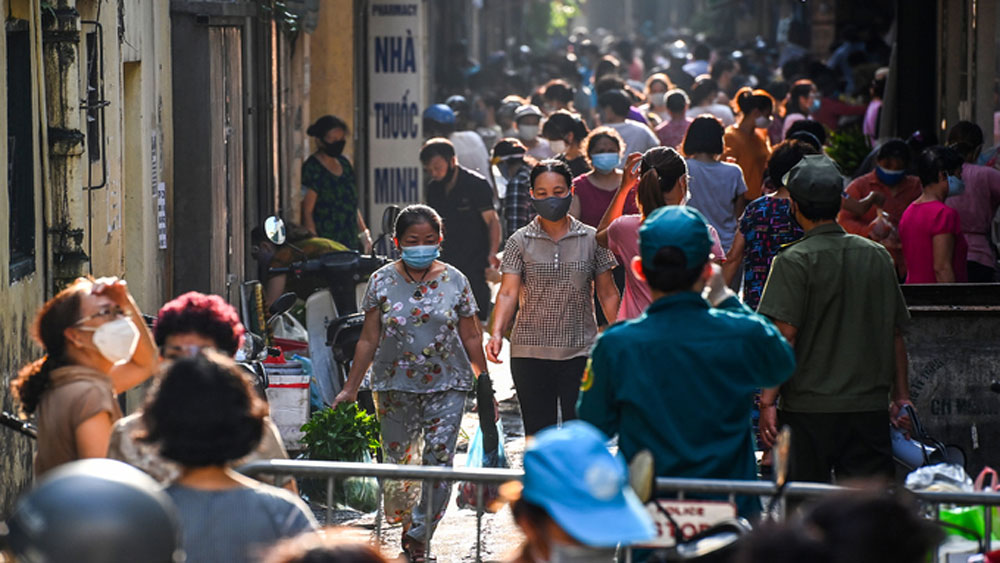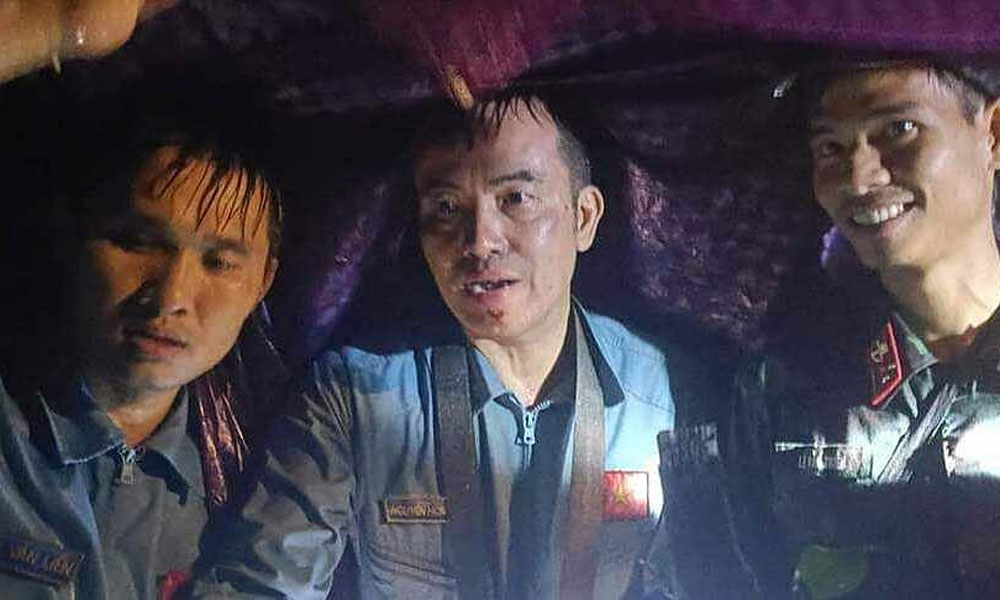Hanoi's coronavirus trajectory unpredictable
Khong Minh Tuan, deputy director of the Hanoi Center for Disease Control (CDC), said Thursday it was hard to evaluate the coronavirus situation in the city because Covid-19 cases are now spread apart instead of having a hotspot.
 |
|
People walk out on the streets of Hanoi on the first day of a two-week Covid-19 social distancing order, July 24, 2021. |
"There will continue to be new coronavirus cases detected through Covid-19 screening on those with symptoms like fever and cough, and many of them would not be immediately traced back to their infection sources, so it is not possible now to predict when the situation will be brought under control," Tuan said, adding that it would take a few days for authorities to perform contact tracing and make assessments.
Anyone with Covid-19 symptoms must immediately report to medical authorities, Tuan said. The city has managed to detect over 170 coronavirus cases through community screening, he added.
Nguyen Dinh Hung, deputy director of the Hanoi Department of Health, said last week the Delta and Delta+ coronavirus variants were responsible for the ongoing fourth wave. The variants are much more transmissible than ordinary strains, taking only up to three days to complete an infection cycle, he added.
Since the fourth wave broke out in late April, Hanoi has recorded 1,287 local Covid-19 cases, including those in locked down locations. Each day the capital records around 50-60 new cases, with the daily number rising to the highest in the fourth wave on Friday, 144.
Experts said the numbers could rise in the next few days as infection sources still lurk within community.
Tran Dac Phu, advisor for the Public Health Emergency Operations Center (PHEOC), said the risk of the coronavirus spreading in Hanoi is high as it is a frequent destination for people from other localities, coupled with its population's high traffic and travel demands.
Especially worrying is the fact that clusters have been detected inside medical facilities, like the Hanoi Lung Hospital and industrial parks like the Thang Long IP. Such locations typically have large gatherings of people, making infection chances all the higher, Phu said.
For now, Hanoi should focus on ramping up Covid-19 screening and testing, especially in high risk areas like industrial parks and markets, to isolate cases and assess risks, he added.
"We can hope that Hanoi will be able to extinguish the coronavirus after 15 days of social distancing. The most important factor is the attitude of the people: the fewer that go outside, the better," Phu said.
The Hanoi health department has already devised treatment plans should the number of cases balloon to 50,000 and thereabouts. It is trying to boost its vaccination speed, especially among workers who need to go out and are more vulnerable to exposure.
Hanoi is undergoing a two-week social distancing order since July 24, where residents are required to stay home and only go out for basic necessities such as buying food or medicines or to work at factories or businesses that are allowed to open.
People must stay at least two meters apart, and no more than two people can gather at public places apart from workplaces, schools or hospitals.
Source: VnExpress
 Bắc giang
Bắc giang















Reader's comments (0)